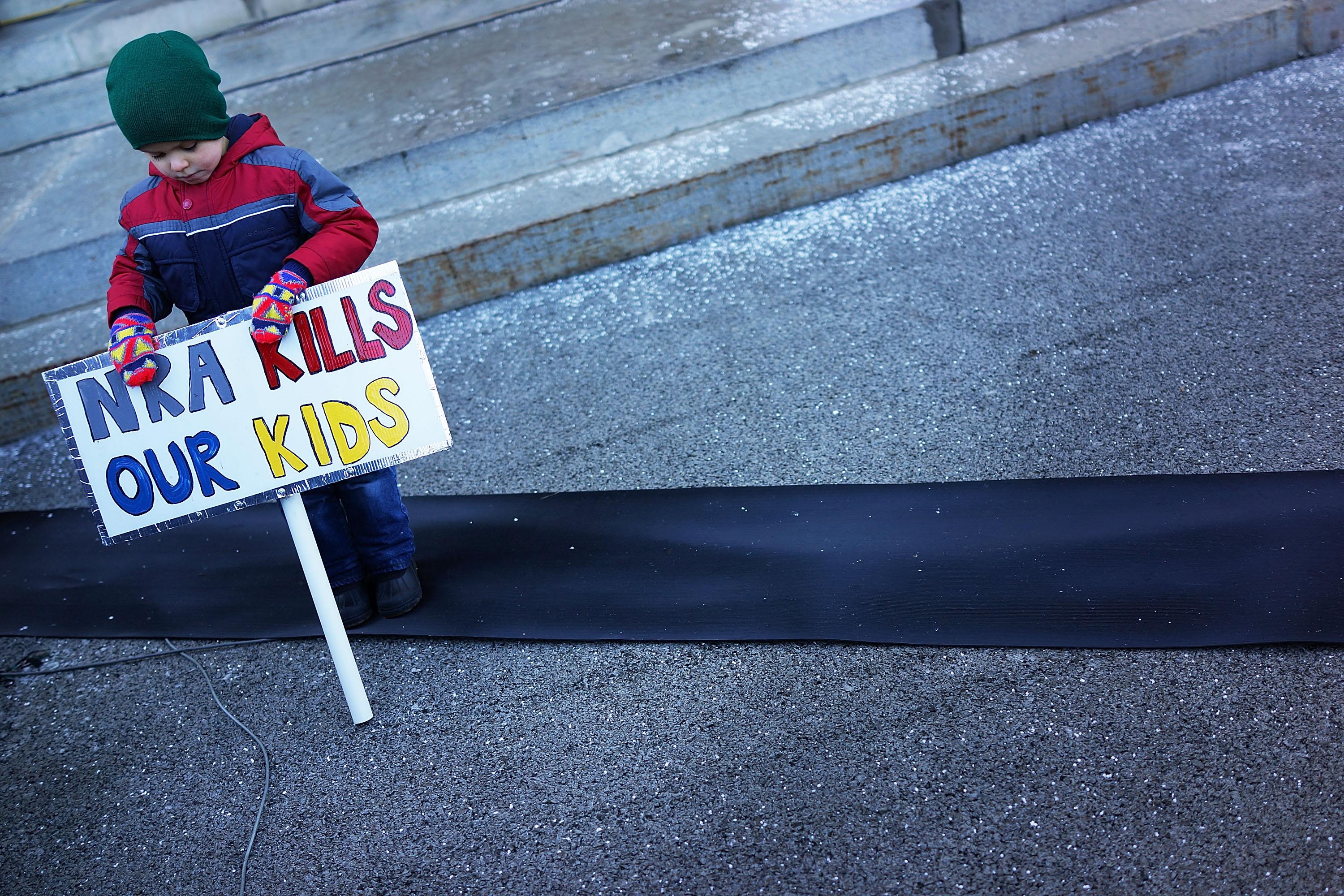Last week, the NRA released its National School Shield Task Force Proposal. At the heart of this proposal is the recommendation that schools be staffed with armed school resource officers (SROs). The NRA’s recommendation was preceded on March 8, 2013 by a South Dakota law that will allow trained teachers to carry weapons at schools.
As a child psychologist, I find myself thinking, do these people know children?
Guns in schools are a bad idea for kids. I offer three reasons why.
I. Kids get their hands on most everything.
Ask your mother. Better yet, recall how you knew where she hid the Christmas presents. Or where your father kept his gun, if he had one. My mother hid the presents in a nook at the top of the attic stairs. My father kept his unloaded shotgun in the right corner at the back of his clothes closet. The ammunition was in an orange box on a shelf in the same closet.
In an under-publicized study that appeared in the journal Pediatrics in 2001, Geoffrey Jackman and a group of his associates asked twenty-nine groups of two to three boys, most of whom were around ten-years-old, to wait for fifteen minutes in a room with a one-way mirror. Two water pistols and an actual .380 caliber handgun were partially concealed in various locations in the room. The handgun was rigged to make the sound of discharge when the trigger was pulled with sufficient force.
Forty-eight out the sixty-four boys found the handgun. Thirty boys handled the gun. Sixteen boys pulled the trigger. Approximately half of the boys who found the gun thought it was a toy, or were unsure if it was real. 90% of the boys who handled the gun or pulled the trigger had previously received some sort of gun safety education.
Kids get their hands on guns, and they know how to use them. The most up-to-date FBI homicide data indicate that of the 1,448 children who died as a result of gun violence in 2010, 165 of those deaths were at the hands of other children.
Yes, the NRA proposals and the South Dakota law place guns in the hands of trained adults. But the rules that train and prescribe who holds guns at school will lapse as rules do. A gun will find its way into a teacher’s desk, briefcase, or purse. And a child will get his hand on it.
II. Kids will be afraid.
And they should be. When violent force is upheld as safety, fear and silence creep in. I have a patient who recalls his silent car rides with his father who kept two guns under the driver’s seat. Silently the boy watched, on guard, even though nothing ever happened. But then again nothing was ever said, and arguably something did happen. There was no way to talk about fear. There was no way to talk about inter-dependence and vulnerability.
So, too, in schools, the presence of guns has the capacity to silence the voice of civics, the voice that helps children learn about what it means to live with one another and to live with feelings and thoughts that buzz along and bump up against others who are different or hard to know. The presence of guns will silence necessary talk of violence, the ups and downs of childhood rivalries, spats and bullying.
III. And this talk is necessary.
Many kids, especially boys, learn to handle their problems with their hands, not their minds. Hence, the elementary school mantra, “Use your words.” Still, children generally make good use of good counsel. The NRA recommends that SROs be employed not only to serve as guards and law enforcers, but also to serve as educators and informal counselors within the school. Educators and counselors who are armed leaves us to question not only the adequacy of their training, but also what it means that they counsel from a position of imminent force.
Engaging children in meaningful dialogue on their level is hard work that requires translation, time, patience, and trust. How exactly is a kid supposed to understand that a relative stranger with a gun will offer trustworthy counsel?
Children do not live with the same mental boundaries that we as adults live with. That is why they need us to insure their safety through the work of our minds, not the formative force of a gun. What message does it send if we suggest through armed school personnel that our minds are not enough?
